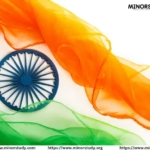🏛️ Introduction: The Silent Guardian of Indian Democracy
Election Commission of India: In a nation of over 1.4 billion people, where every citizen’s voice matters, conducting free and fair elections is not just a task—it’s a monumental responsibility. That responsibility rests on the shoulders of the Election Commission of India (ECI), the guardian of India’s democratic spirit.
- 📜 History of the Election Commission of India
- 📅 Timeline of Key Events
- 📌 7 Powerful Facts About the Election Commission of India
- 💬 Frequently Asked Questions (FAQs)
- 🌟 Significance of the Election Commission in Indian Democracy
- 🧭 1. Ensures Democratic Continuity
- 🛡️ 2. Safeguards Citizens’ Rights
- 📢 3. Promotes Ethical Politics
- 🔍 4. Maintains Electoral Integrity
- 📚 5. Educates and Empowers
- 🎉 Observance: National Voters’ Day – 25th January
- 🎊 Wishing Messages for National Voters’ Day & Democracy Celebrations
- 📍 Important Points to Remember
- 🌱 Importance in Daily Life and Society
- 🧑⚖️ Builds Trust in Institutions
- 🎓 Educates Citizens
- 🌐 Connects Citizens to Governance
- 🤝 Strengthens National Unity
- 🔒 Secures the Future
- 🏁 Conclusion: ECI — The Silent Power Behind India’s Loudest Voice
The ECI is one of the most respected institutions in the country, playing a vital role in shaping the future of governance by ensuring that elections are conducted with integrity, transparency, and impartiality. It is the bedrock upon which the world’s largest democracy stands.
📜 History of the Election Commission of India
The Election Commission of India was established on 25th January 1950, just a day before India celebrated its first Republic Day. This timing was deliberate—as the Constitution came into force, the machinery to implement democratic governance had to be in place.
Initially, it was a single-member body, with Sukumar Sen appointed as the first Chief Election Commissioner. Over the decades, the commission evolved, and in 1989, it was expanded to include two Election Commissioners, making it a multi-member body.
Today, the ECI operates under Article 324 of the Indian Constitution and is responsible for conducting elections to the Lok Sabha, Rajya Sabha, State Legislative Assemblies, and the offices of the President and Vice-President of India.
📅 Timeline of Key Events
| Year | Milestone |
|---|---|
| 1950 | Election Commission of India formed (25th January). |
| 1951–52 | First General Elections held under ECI’s supervision. |
| 1989 | ECI becomes a multi-member body. |
| 1990s | Introduction of Electronic Voting Machines (EVMs). |
| 2004 | First full-fledged use of EVMs nationwide. |
| 2010 | ECI introduces Voter Verified Paper Audit Trail (VVPAT). |
| 2020s | Digital voter registration, social media monitoring, and real-time updates via apps. |
📌 7 Powerful Facts About the Election Commission of India
🏛️ Constitutional Authority: Established under Article 324, the ECI is completely autonomous and cannot be overruled by any other authority.
👤 Multi-Member Body: Composed of a Chief Election Commissioner (CEC) and two Election Commissioners.
🗳️ First Elections in 1951–52: Involved 173 million voters, 16,000 candidates, and was a world-record electoral exercise.
📱 Technology-Driven: Introduced EVMs, VVPATs, and mobile apps like Voter Helpline and cVIGIL to report violations.
🎯 Model Code of Conduct (MCC): Ensures ethical campaigning and prohibits misuse of power by ruling parties.
🌍 Global Recognition: Other nations like Nepal, Bhutan, and Afghanistan have modeled their electoral systems on ECI guidelines.
🧠 Permanent Machinery: The ECI operates year-round, not just during elections. It maintains electoral rolls, educates voters, and monitors political financing.
💬 Frequently Asked Questions (FAQs)
Q1: What is the primary role of the Election Commission of India?
A: To conduct free and fair elections for national and state legislatures, and ensure the integrity of democratic processes.
Q2: Who appoints the Chief Election Commissioner?
A: The President of India.
Q3: How long is the tenure of the Chief Election Commissioner?
A: Six years or up to the age of 65, whichever is earlier.
Q4: What is the Model Code of Conduct (MCC)?
A: A set of guidelines for political parties and candidates to ensure ethical campaigning and fair elections.
Q5: Can decisions of the ECI be challenged?
A: ECI’s decisions can be challenged in court, but they are generally binding and respected due to the Commission’s autonomous nature.
🌟 Significance of the Election Commission in Indian Democracy
🧭 1. Ensures Democratic Continuity
Without a strong ECI, free and fair elections would be impossible. It upholds the basic structure of Indian democracy.
🛡️ 2. Safeguards Citizens’ Rights
The Commission ensures that every eligible Indian, regardless of caste, creed, or class, gets an equal say in governance.
📢 3. Promotes Ethical Politics
By enforcing the Model Code of Conduct, it prevents the misuse of money, muscle power, or government machinery.
🔍 4. Maintains Electoral Integrity
From updating voter rolls to conducting surprise checks and raids, the ECI ensures there is no rigging or malpractice.
📚 5. Educates and Empowers
Through initiatives like SVEEP (Systematic Voters’ Education and Electoral Participation), ECI creates awareness and encourages voter participation, especially among youth and women.
🎉 Observance: National Voters’ Day – 25th January
National Voters’ Day, celebrated annually on January 25th, coincides with the ECI’s founding day. The objective is to:
Encourage young people to participate in elections.
Raise awareness about voting rights and responsibilities.
Celebrate India’s commitment to democratic values.
🎊 Wishing Messages for National Voters’ Day & Democracy Celebrations
🗳️ “Let’s honor the heroes of democracy—the voters and the Election Commission. Happy National Voters’ Day!”
🌈 “One vote can change the future. Salute to the Election Commission for protecting our democratic rights.”
🙌 “Voting is not just a right; it’s a responsibility. Let’s thank the ECI for making it count.”
📍 Important Points to Remember
ECI is autonomous and impartial.
It protects voter rights and electoral integrity.
Elections are conducted under strict security and legal frameworks.
The Model Code of Conduct ensures fair play for all political parties.
Innovations in technology have enhanced transparency.
🌱 Importance in Daily Life and Society
🧑⚖️ Builds Trust in Institutions
Knowing that a neutral body conducts elections helps build public confidence in the political process.
🎓 Educates Citizens
The ECI, through campaigns and awareness drives, teaches people about electoral rights, voter registration, and civic duty.
🌐 Connects Citizens to Governance
By enabling citizens to vote, the ECI creates a direct bridge between people and policymaking.
🤝 Strengthens National Unity
Elections organized by ECI are a celebration of inclusivity, where millions come together regardless of their differences.
🔒 Secures the Future
Every fair election ensures that governance reflects the will of the people, and not coercion or manipulation.
🏁 Conclusion: ECI — The Silent Power Behind India’s Loudest Voice
In the chaos of political debates, campaign rallies, and ballot box counting, the Election Commission of India remains silent but powerful. It doesn’t shout slogans, but it ensures that your voice is heard—clearly, fairly, and democratically.
The ECI is not just an institution; it’s the very soul of Indian democracy. Every time you vote, remember that a dedicated team of silent warriors worked tirelessly to make it happen.
So, whether you’re a first-time voter or a senior citizen, always remember: Your vote matters, and the Election Commission ensures it counts.









Appreciate it for this post, I am a big fan of this web site would like to go on updated.